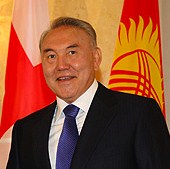Earlier this month Kazakh Prime Minister Serik Akhmetov resigned unexpectedly after only 18 months in the post. In an email interview, Anthony Bowyer, senior program manager for the Caucasus and Central Asia at the International Foundation for Electoral Systems, explained what led to Kazakhstan’s cabinet reshuffle.
WPR: What was the context of the sudden replacement of Kazakhstan’s prime minister earlier this month?
Anthony Bowyer: The main reasons for Akhmetov’s resignation had to do with the state of the economy. There were significant issues with the state budget, scandals surrounding taxes on automobiles and real estate, problems with the pension fund and a major production setback with the Kashagan oil field project, which is years behind schedule and billions of dollars over budget. All of this will negatively impact Kazakhstan’s economic outlook for 2014 and 2015, and has contributed to high inflation, as well as large currency devaluations in February in which people lost nearly 20 percent of their savings. There has thus been a sense that Akhmetov was unable to keep up with the demands of his office, and it was clear Kazakh President Nursultan Nazarbayev needed to take action to shake things up. In reappointing Karim Massimov as prime minister—a post Massimov previously held from 2007 to 2012—Nazarbayev is gaining for his government a proven commodity and well-known figure in Kazakhstan and abroad, who he feels will be able to help address the country’s economic issues and restore flagging confidence at home.

